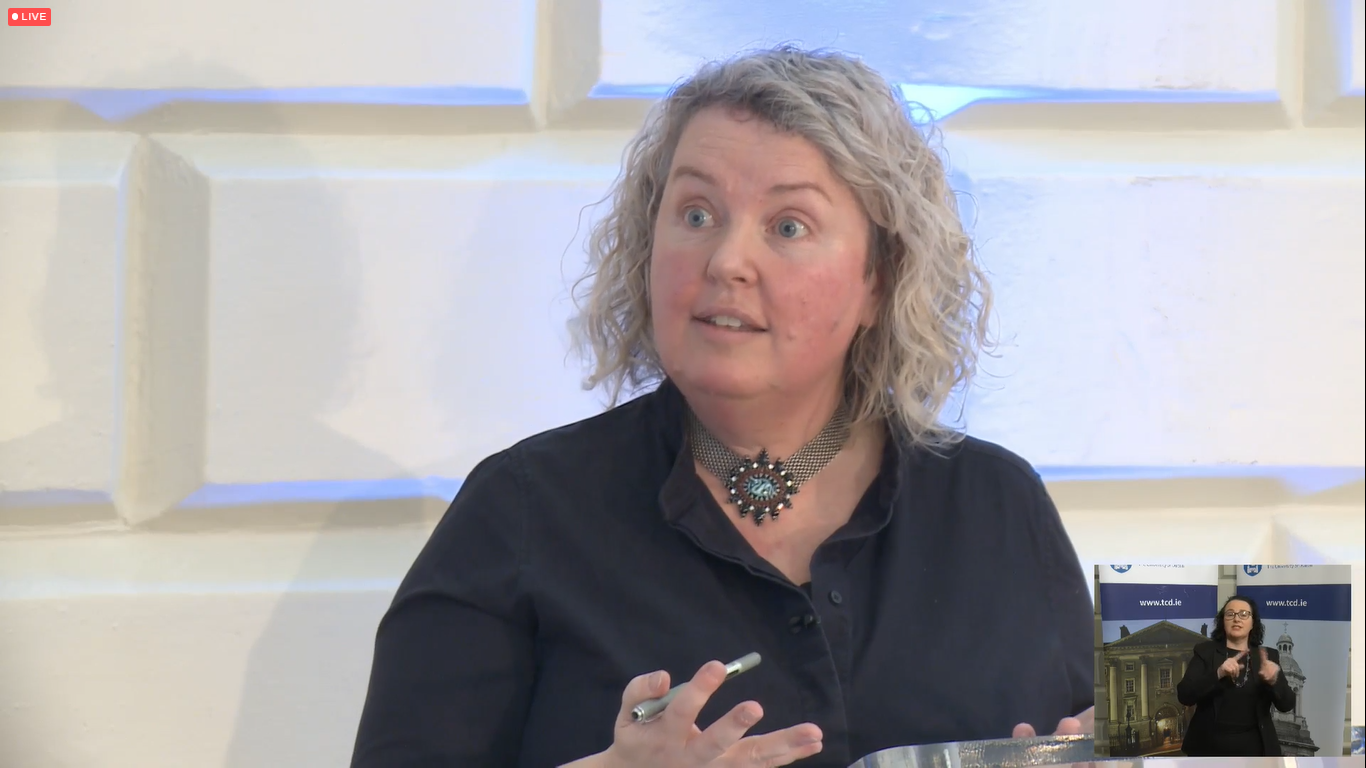Provost Linda Doyle has forecasted that the lasting effects of artificial intelligence (AI) on higher education will make the changes brought about by Covid-19 “pale into insignificance”.
In an article published by the Irish Universities Association (IUA), she said that cheating will be “among the least important” consequences of AI for universities.
The provost said that AI will lead to a “whole redefining of the knowledge economy”, pointing to how AI programmes have “already [been] proposed as substitutes for teachers”, and their potential to boost productivity in software and other industries.
Doyle also alluded to its implications for the research sphere, saying: “There are also numerous examples of how AI platforms can speed up research, right from the brainstorming phase to the actual carrying out of the research.”
Earlier this year, a study by Professors Brian Lucey of Trinity Business School and Michael Dowling of Dublin City University (DCU) showed ChatGPT to be capable of writing a paper that would be accepted for publication in an academic journal.
Around the same time, thousands of such publications banned or restricted the use of ChatGPT in academic work, fearing its potential to produce flawed material.
However, Lucey and Dowling argued that “researchers should see ChatGPT as an aide, not a threat”.
Doyle also discussed the implications of AI for automating and replacing human jobs, pointing to a recent report by McKinsey which estimated that half of today’s work activities could be automated between 2030 and 2060.
She voiced environmental concern for the energy costs of generative AI, which is estimated to use “10-100 times more energy [per query] than a typical search engine”, as well as “big issues” relating to intellectual property and copyright, data privacy, and data ownership.
The provost articulated two “hypotheses” upon which she bases her optimism for the future of education and research against the backdrop of rapid advancements in AI.
“The first is that graduates of the future will have to be even greater experts in their field in order to get the most out of these AI tools. The second is that the use of generative AI platforms could lead to the development of stronger critical thinking skills among workers.”
Doyle continued that in order to see these hopes come about, “I have to find a way for our university to fully engage with this space, to become skilled enough to use and challenge these tools, to have the levels of cybersecurity needed to be resilient in a world in which they are widespread”.
“I know that we have the talent and drive in Trinity to take on this challenge,” she added.
“I feel that addressing generative AI is a responsibility that needs to be addressed head on, for our students, for our staff and for this country’s sake.”
College has previously advised academic staff to revise or augment modes of assessment to counter the use of ChatGPT, suggesting the inclusion of more presentations or oral exams.
In March, students were warned that the use of AI in assessments would have “serious consequences for [their] academic progress”, constituting a breach of academic integrity principles.






